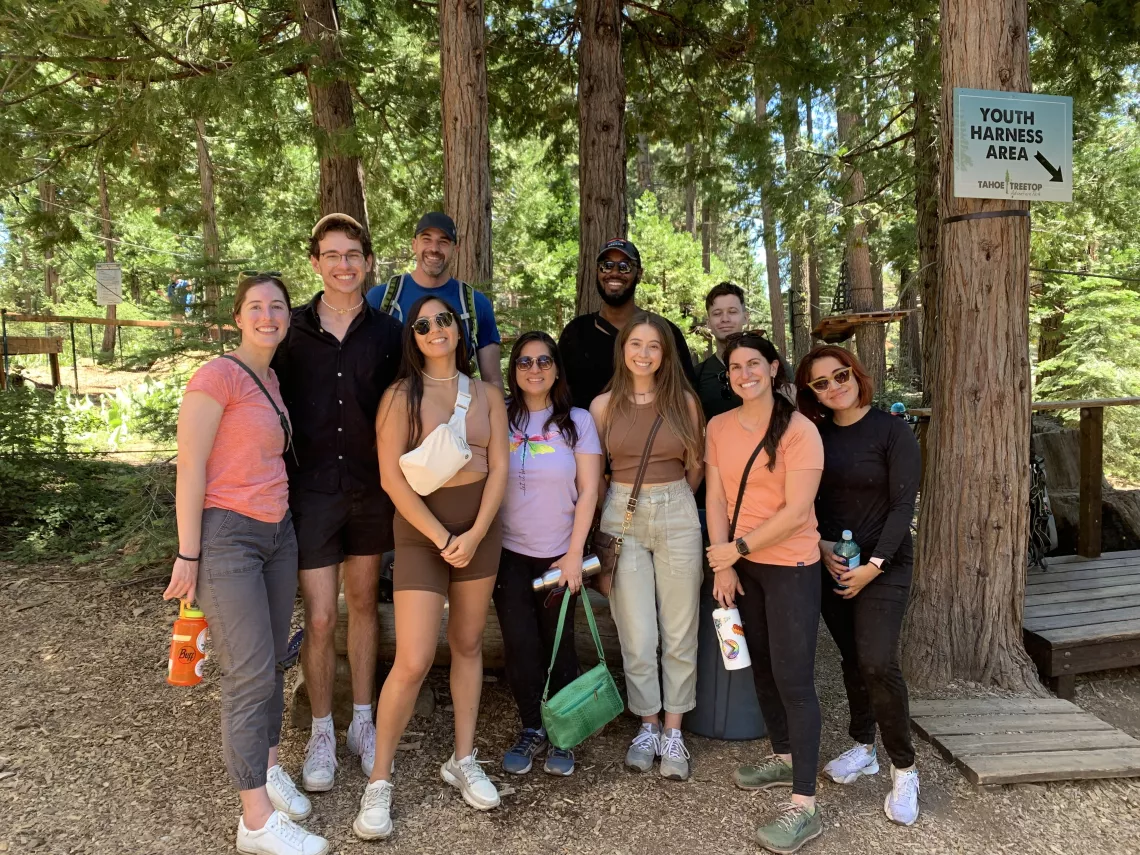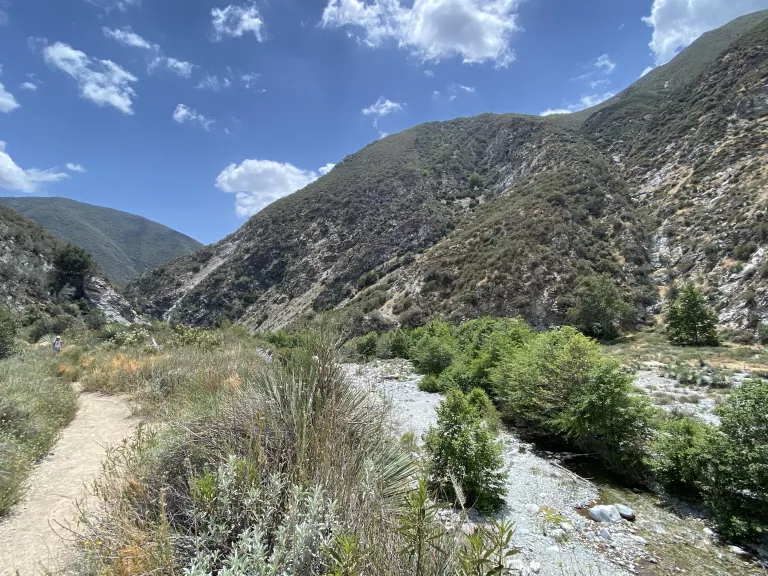
The Importance of Remote Participation at Public Meetings
We’re Hiring a Chapter Director and Policy Intern!
How You Can Help Protect California’s Natural and Working Lands
By Jakob Evans

On February 27th, the San Francisco Public Utilities Commission (SFPUC) took an important step to increase its transparency by returning remote public comment to their Commission meetings. The SFPUC removed remote public comment in October of 2023 after San Francisco Mayor London Breed requested all Commissions follow suit with the San Francisco Board of Supervisors, which eliminated the service in response to a hate speech incident.
The return of remote public comment was brought to a vote by request of Commissioner Ajami, who argued that the SFPUC should be more accessible to its 2.7 million customers who live across the Bay Area. The item passed 3-2, with Commissioners Ajami, Maxwell, and Stacy voting in support, and Commissioners Paulson and Rivera voting against. Commissioner Sophie Maxwell explained her 'yes' vote, saying "This is real democracy... when a person can call from anywhere and have direct contact with a policymaker, that’s what this country is about.” This is a major win for transparency and inclusivity. Remote public comment will allow Sierra Club California and its allies to better mobilize to oppose the SFPUC’s harmful actions against the Bay-Delta.
Remote public comment is a keystone of any transparent, accessible democracy because the service allows community members who are disabled, older, caregivers, students, or working-class to make their voices heard to local government. Without remote public comment, members of the public are required to take hours out of their day to attend public meetings that often occur during working hours, preventing the voices of vulnerable community members from being heard.
The San Francisco Mayor’s decision to remove remote public comment did not align with the attitudes of the majority of California cities. A recent survey by CommonCause found that 69 percent of cities utilize remote public comment in the post-pandemic era and that 56 percent of cities that utilize remote public comment see a general increase in public comments. Remote public comment was normalized during the pandemic and it remains in place across California because it increases public engagement.
Some California water agencies have branded remote public comment as a no-longer-needed, pandemic-era service in attempts to shield their work from the public eye. Sierra Club California will continue to advocate for Californians to have their voices heard, and you can help! The Bay Area Water Supply and Conservation Agency (BAWSCA) removed its remote engagement options in recent years and has ignored public calls to bring it back. Help increase transparency and public engagement at BAWSCA by sending a message to board members telling them to restore remote participation at their board meetings.
We’re Hiring a Chapter Director and Policy Intern!
By Michael Blenner

If you’ve ever wanted to make a real difference for the environment in California, now’s your chance. Sierra Club California is hiring a Chapter Director and Policy Intern.
The Chapter Director will lead our operations and advocacy work across California. This position will supervise all chapter staff, and be responsible for the strength, functioning, and growth of Sierra Club California and the sustainability of the organization’s work across the state. They will work alongside the Chapter Executive Committee, local chapters, and Field Department Staff to grow our support, build effective campaigns, engage donors, and achieve our organizational priorities. Think you’ve got what it takes to be a leader for California’s environment? Apply for the Chapter Director position here.
The Policy Intern will perform research and analysis, and attend briefings and coalition meetings on environmental policy in California. The Intern will work closely alongside Chapter staff and volunteers to track legislative and regulatory activity, and represent the chapter in coalition spaces and at legislative and regulatory hearings. Apply for the Policy Intern position here.
If you or someone you know is a passionate environmental advocate and has the skills for either of these positions, we encourage you to apply! These are unique opportunities to put those skills into practice and work with some of the most talented environmental activists across the state. Applications for both positions will be reviewed on a rolling basis.
How You Can Help Protect California’s Natural and Working Lands
By Mahtisa Djahangiri

California’s natural and working lands (NWL) have a critical role to play in the state’s climate strategy and ability to achieve carbon neutrality. Our lands have the potential to be a key part of the climate solution, yet unfortunately they remain a major source of carbon emissions.
In 2022, the legislature passed AB 1757, a bill which aims to encourage nature-based carbon sequestration by expanding California’s NWL. Sierra Club California has been closely following its implementation process, and participating in every opportunity for engagement along the way. AB 1757 seeks to use NWL as a carbon sink by improving management, setting carbon sequestration targets, and evaluating and implementing climate smart practices by land type.
Because of the nature of industry and production that takes place within our NWL, these administrative processes present a great opportunity to stop the harmful practices of polluting industries like logging and oil and gas extraction. These environmentally destructive activities undermine the commitments of Governor Newsom’s Executive Order N-82-20, which calls for the restoration of California’s landscape health, protecting biodiversity, and expanding equitable outdoor access to deliver on our climate change goals, as well as reach our 30x30 conservation goals.
Polluting industries want to keep the status quo “business as usual” approach to NWL, which has caused our public lands to be a major source of carbon emissions. If these policies, practices, and projects remain unchanged California will not be able to meet our emissions reductions or 30x30 goals, even in tandem with the best nature-based solutions available.
This year, the Natural Resources Agency is working in collaboration with the California Environmental Protection Agency, California Air Resources Board, and the California Department of Food and Agriculture to update the Natural and Working Lands Climate Smart Strategy, as mandated by AB 1757.
In the first round of public comment on this update, the agency provided guiding questions which included a highlight for a new section to the strategy: barriers to implementation. The next few months will include Tribal consultation, with the draft strategy slated for release in June of this year. Once the draft strategy is out, there will be another opportunity to provide public comment on the draft strategy (June-July).
The update of the Climate Smart Strategy will implicate future state investments; policies, programs, and partnerships; and advance climate smart land management on the land sectors of forests, grasslands, deserts, croplands, seagrasses and seaweed, sparsely vegetated lands, wetlands and water, shrublands and chaparral, as well as developed lands. Click here to learn more about this update and other opportunities to engage on nature-based solutions. If you are interested in contributing to this process, reach out to mahtisa.djahangiri@sierraclub.org
Follow Us:
  |
Thank you for being a part of our work! Consider making a monthly donation. You may securely donate online or by sending a check to Sierra Club California at 909 12th Street, Suite 202, Sacramento, CA 95814.
